Too Close to Call
These are the films/performances where I felt that two films/performances were equally deserving. While I have a favorite, I completely understand why the other won.
Jamie Foxx over Leonardo DiCaprio for Best Actor (2004)
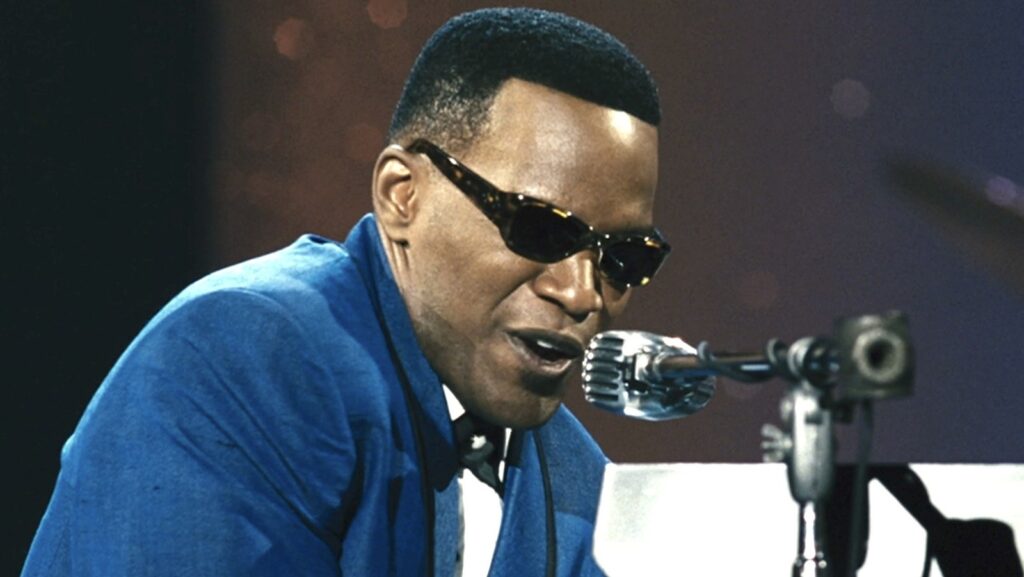
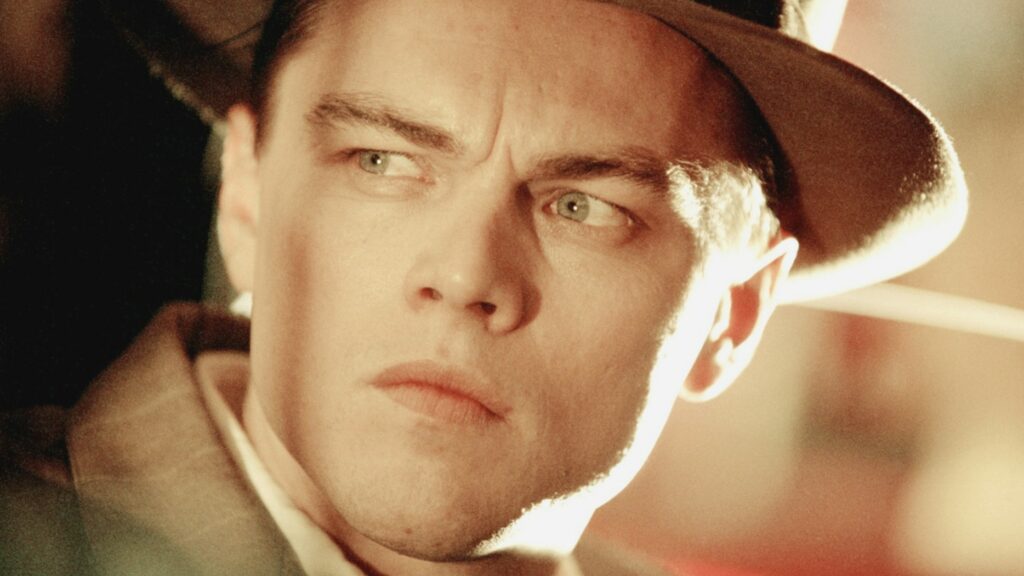
I’ve spoken at length about the Best Actor race of 2004, more specifically, in regards to Paul Giamatti’s omission. This is one of the years that I felt like the voters had an impossible choice. Jamie Foxx or Leonardo DiCaprio. Both actors transformed themselves into the real-life men they portrayed in the most compelling way possible. They weren’t just playing these characters, they became them. Jamie Foxx, who went to college on a classical piano scholarship, performed all of the songs himself and even used prosthetics over his eyes to embody the traits of the blind singer Ray Charles. DiCaprio, on the other hand, dedicated hundreds of hours to portraying Hughes’ level of OCD on screen. He not only worked closely with a doctor at UCLA but also met with and observed real OCD patients to get their habits and mannerisms down. Either man could have walked away with the prize. It was that close. I’m not upset or bitter that Foxx won, but I would have preferred DiCaprio. What gave DiCaprio the edge in my book is that I actually like The Aviator. I thought it was compelling and it kept me engaged over its nearly three-hour runtime. Ray bored me, plain and simple. I thought it was a better performance than the actual movie. If I’m bitter about anything, it’s that DiCaprio not winning for this movie seemed to have created the idea that he was owed an Oscar. It took two additional nominations (Blood Diamond and The Wolf of Wall Street) before he finally won for The Revenant. It’s like Al Pacino in Scent of a Woman. Go find me somebody who thinks The Revenant is Leo’s best performance. Go ahead. I’ll wait.
Alan Arkin over Eddie Murphy for Best Supporting Actor (2006)
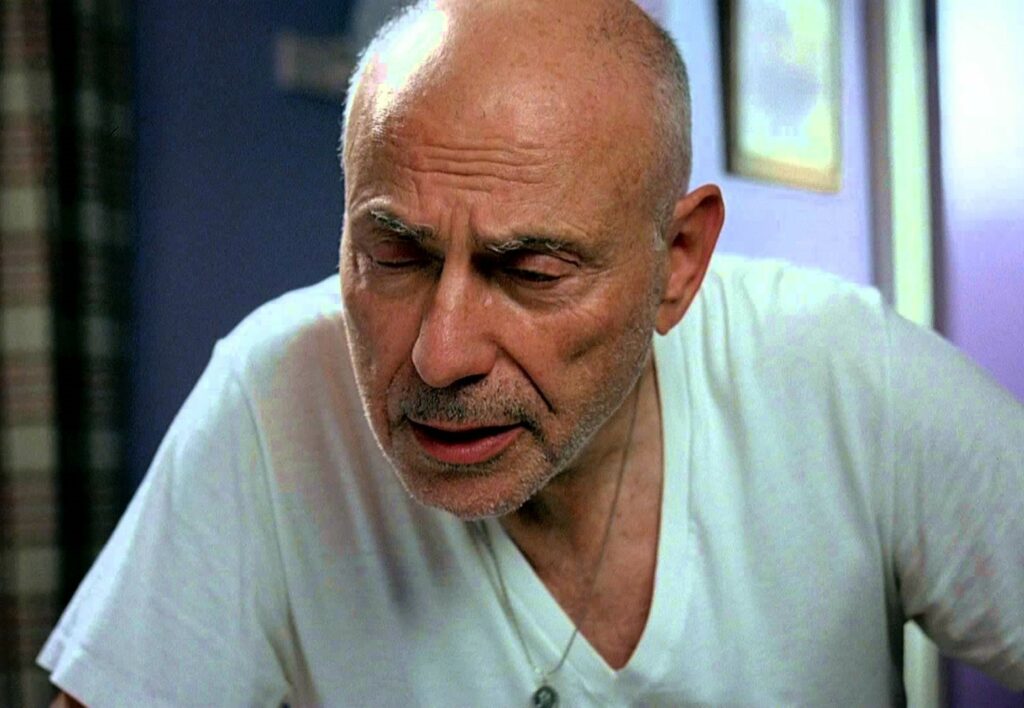
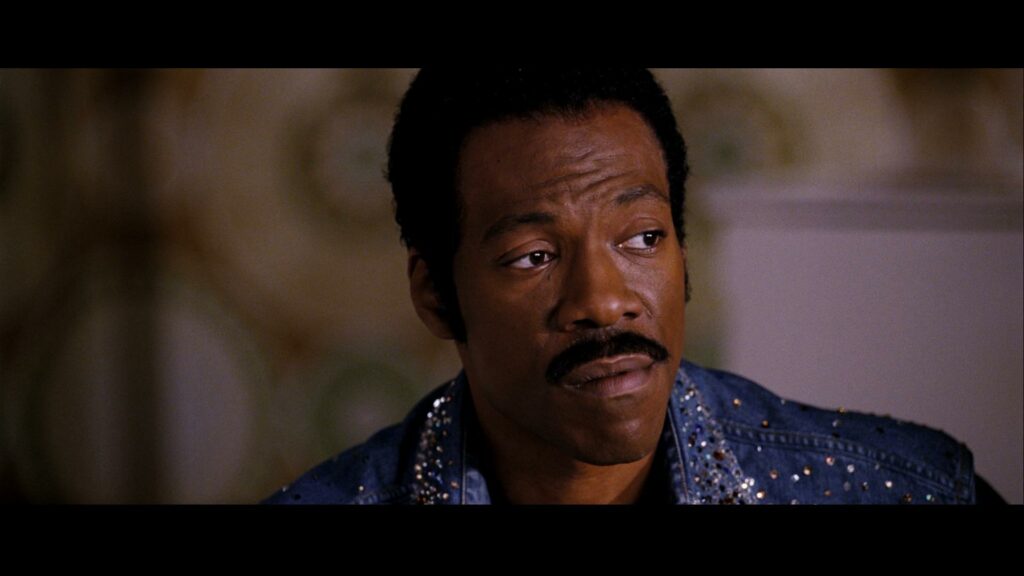
I have an upcoming series about comedic actors who excelled in a dramatic turn. This race will come up again a little more in-depth when I talk about Eddie Murphy in that series. To understand the full extent of this particular race, we need to go back to 2006. Eddie Murphy, once the biggest comedy star in the world, was in the midst of a career slump. Outside of Shrek at its sequel, Murphy hadn’t had a hit movie in quite some time. To the public and some critics, it seemed like an odd choice for Murphy to work for peanuts in a supporting role in an adaptation of a Tony-winning musical. When Dreamgirls was finally released in December 2006, critics were silenced. Murphy’s performance (as well as co-star Jennifer Hudson’s) was universally praised. Murphy’s take on fading R&B star Jimmy “Thunder” Early let Murphy demonstrate not only his singing and dancing skills but also his more serious side. Throughout awards season, Murphy and Hudson were consistently nominated for and won many different prizes. They both took home awards at the Golden Globe and Screen Actors Guild Awards in the Supporting categories, often the prime indicator for the Oscars. Then came Oscar night 2007. Hudson won in her category, but the name Rachel Weiz read when she presented the Supporting Actor award was that of Alan Arkin. It was a shocking moment, but I don’t think anyone was more shocked than Murphy himself, who left the ceremony shortly after.
So, you might be asking yourself, what happened? I should note that Little Miss Sunshine was the surprise hit of the 2006 Sundance Film Festival and Arkin’s performance as the drug-using, foul-mouthed Grandpa was praised. A nomination was certainly expected, but a win was not. I have three prevalent theories on why Arkin came out victorious. The first is the classic “overdue Oscar” theory. Arkin, 73 when he won, was an industry veteran riding off of his first nomination since 1969. That sounds like grounds for an overdue award to me, and I’m sure other voters thought so too. Another factor is the so-called Norbit effect. Norbit, Murphy’s critically panned comedy was released right in the middle of Oscar voting. Some theorize that Oscar voters took offense at the idea of awarding an actor who made such a mesmerizing turn, only to go back to immediately making detestable comedies. Again, this is just a theory, but it isn’t without merit. My last theory comes down to Best Picture. Sunshine was nominated and though Dreamgirls was expected to be, it ultimately wasn’t. I believe that, in some way, affected the voters. In the end, I would have preferred if Murphy won, but I was happy Arkin won. Maybe I’m just partial to comedic actors turned dramatic, but I thought Murphy gave the better performance. However, as much as I enjoyed Dreamgirls as a whole, I did enjoy Little Miss Sunshine better. I’m still holding out hope of a Murphy Oscar win sometime in the future.
Patricia Arquette over Emma Stone for Best Supporting Actress (2014)
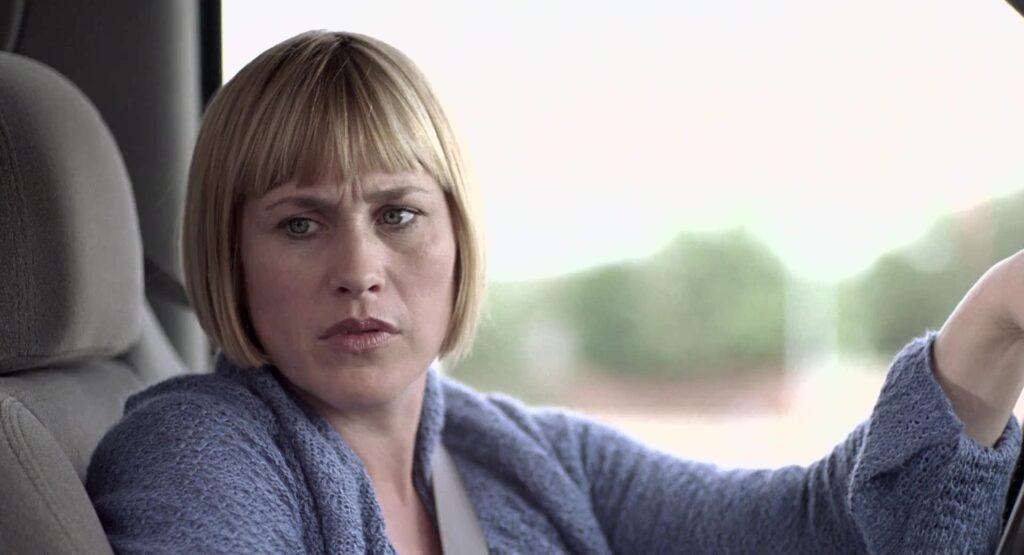
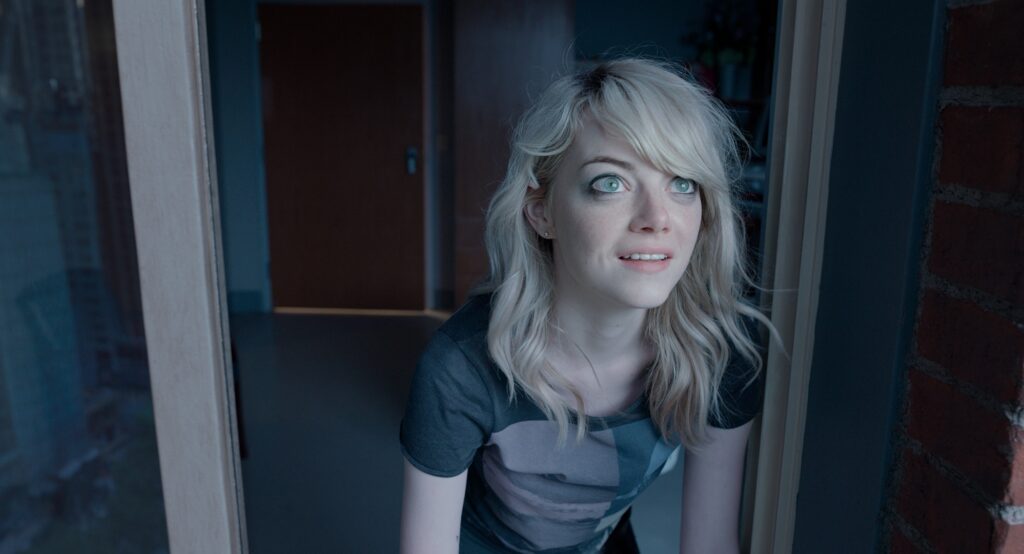
I don’t fault the Academy for awarding Arquette the Oscar over Stone. Both first-time nominees gave remarkable, heartfelt performances in their respective films. Arquette won for playing Mom (Olivia) in Richard Linklater’s coming-of-age epic, Boyhood. Shot over twelve years, you witness Olivia grow and change (along with her son). Arquette uses those time jumps to her advantage. She channels all the ups and downs over a dozen years into a strong performance. Let’s talk about Stone. When I saw her in Birdman, playing Michael Keaton’s recovering addict daughter, I was blown away. Before this, I had only seen her in comedies like Superbad, Zombieland, and Easy A. I had no idea she had real acting chops. She plays into the anger resentment and abandonment she feels toward her father, before finally making amends. I believe the scene in the movie where Stone is just laying into Michael Keaton and she’s giving this monologue about relevance and the people who are fighting for it, is the highlight of a pretty great film. I think the reason I preferred Stone’s performance is because I preferred Birdman over Boyhood (more on that later). I can’t feel too bad for Stone not winning because she would go on to receive three more nominations and a win for La La Land.
Eddie Redmayne over Michael Keaton for Best Actor (2014)
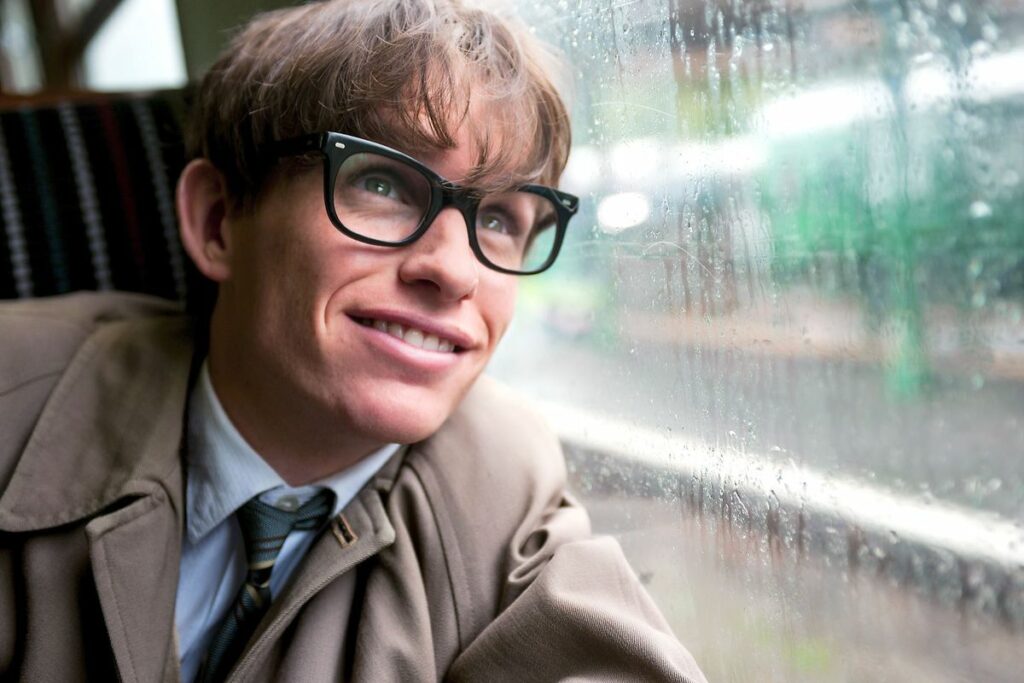
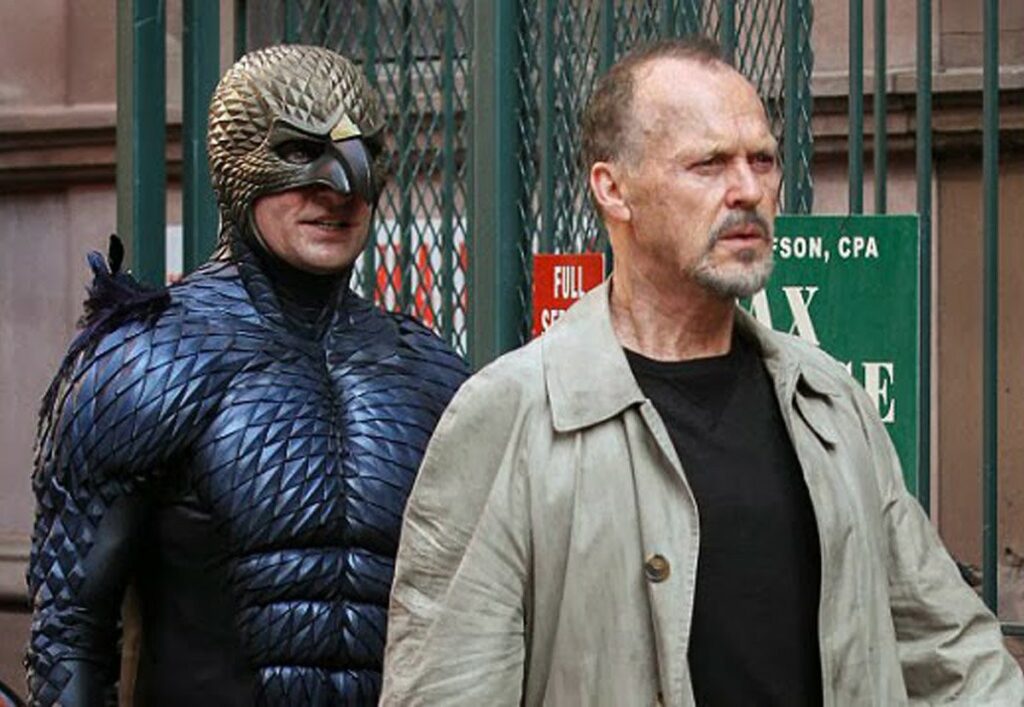
While the 2014 Best Picture race was always Birdman vs. Boyhood, the Best Actor race was always Michael Keaton vs. Eddie Redmayne. Both men won the Golden Globe; Keaton for comedy and Redmayne for drama. Besides the Globes, both had things working in their favor. Redmayne was starring in a biopic of Stephen Hawking and he committed himself to getting Hawking’s mannerisms down, embodying him completely. Plus, this was for all intents and purposes, his breakthrough. Keaton, on the other hand, gave his all in portraying Riggan Tomson, a fading celebrity writing, directing, and starring in a Broadway play to revive his career. Whereas Redmayne was a fresh new face, Keaton was an industry veteran celebrating his first nomination. His portrayal of a fading star desperate to cling on to what remaining fame he has, probably hits home with some voters. In the end, Redmayne was declared the winner. As I mentioned earlier, the Academy is a sucker for biopics. Add to that the fact that he was portraying a man with disabilities (the Academy also loves that shit), and it’s almost a no-brainer. Despite his win, Redmayne hasn’t reached Keaton’s star power. He had roles in prestige films like The Trial of the Chicago 7 and the regrettable The Danish Girl (for which he received his second and most recent nomination), but his most notable performance was as Newt Scamander in the disappointing Fantastic Beasts trilogy.
Though Keaton ultimately did not win, it did set off somewhat of a career resurgence, starring in films like The Founder, Spider-Man: Homecoming, and Best Picture winner Spotlight. That’s not even including his devastating turn as a drug-addicted doctor in Hulu’s Dopesick, for which he won an Emmy. As a fan of Keaton’s work, I’m thankful for his second act.
Birdman over Boyhood for Best Picture (2014)
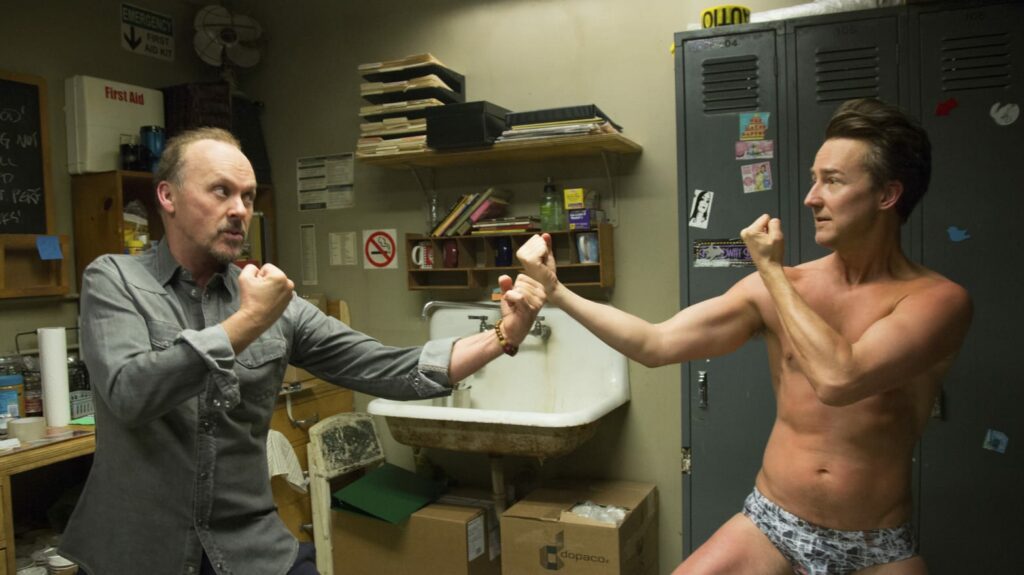
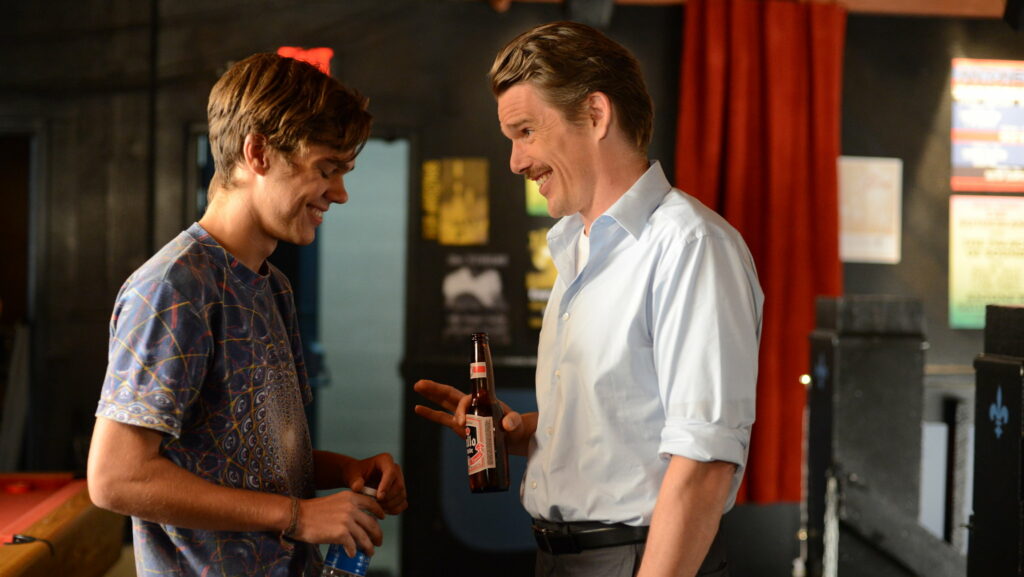
Here we have the biggest Oscar war of the last decade, Birdman vs. Boyhood. Boyhood premiered at the Sundance Film Festival in January 2014 and was immediately embraced by critics. Richard Linklater’s long-gestating coming-of-age film showed Mason, a six-year-old boy grow over twelve years in real-time. The film was ambitious, to say the least. Linklater’s immersive approach to filmmaking won over audiences by showing the ups and downs of a family unit over more than a decade. With only two professional actors (Patricia Arquette and Ethan Hawke), the film is probably the closest to a documentary without actually being a documentary. When the film was released worldwide in July, it immediately jumped to the top of the Oscar conversation. Linklater’s innovative directing was sure to be a lock, right? The early pundits thought that, but then Alejandro G. Inarritu’s dark comedy Birdman swooped in (pun intended) and changed the conversation. It was becoming clear that the tide was turning. Linklater won the Golden Globe for his direction and the film for Best Drama. Still, Inarritu won the Directors Guild of America Award and the film for Best Picture at the Producers Guild of America Awards. Interestingly enough, Birdman competed for Best Comedy at the Golden Globes but lost to Wes Anderson’s The Grand Budapest Hotel, which wasn’t much of a serious contender. Then, on Oscar night, Birdman bested Boyhood, taking home trophies for Best Director, Original Screenplay, Cinematography, and Best Picture.
It’s interesting to me how much time changes your views on certain subjects. In 2015, I was team Boyhood all the way and I genuinely felt that the Academy made a grave mistake. But, as with anything, I sucked it up and moved on with my life. When I was working on my aforementioned series on comedic actors turned dramatic, I wrote a piece on Michael Keaton, specifically his role in Birdman. I watched the film for the first time in nearly a decade and was surprised just how much I enjoyed it. I got the humor, particularly in the character stereotypes, that I did not see before. I saw the poignancy and the power in the performances and I could admire Inarritu’s directing style. By successfully pulling off the illusion of one continuous, unbroken shot, I could see why the Academy would give him an award. I also better understood the film’s themes on relevancy and the human condition. These are things that a 16-year-old Nick couldn’t comprehend.
In giving Birdman another look, I felt I owed Boyhood the same. I feel conflicted saying this because as a storyteller, time is one of my favorite elements. I enjoy movies like Boogie Nights which show characters changing over time and movies like The Hours, which explore the passage of time as a relationship to characters and events. So, in theory, I should like Boyhood more, but why don’t I? To put it simply, I think Birdman is more exciting. I love the concept of Boyhood, but it can be dull. This time around, I felt all two hours and forty-five minutes of the runtime. Birdman had, in my opinion, an electricity to its pacing. It moved quickly. I’m not mad that Boyhood moved at a slower pace, but I just wish the storyline was more compelling.
When Boyhood was released, I like others, thought it was a watershed moment, but a decade later, it isn’t spoken about as often as I thought it would be. Sadly, it appears to be, for all intents and purposes, a fad film. It’s so unique that it could not be successfully replicated in another film without it being deemed a ripoff. In an ever-evolving career that includes comedies (Dazed and Confused, School of Rock), experimental (Waking Life, A Scanner Darkly), and dramas (the superb Before trilogy), Boyhood will forever sit as the gem atop Richard Linklater’s filmography. So, in the end, I think the correct film won big at the Academy Awards that night.
Mark Rylance over Sylvester Stallone for Best Supporting Actor (2015)
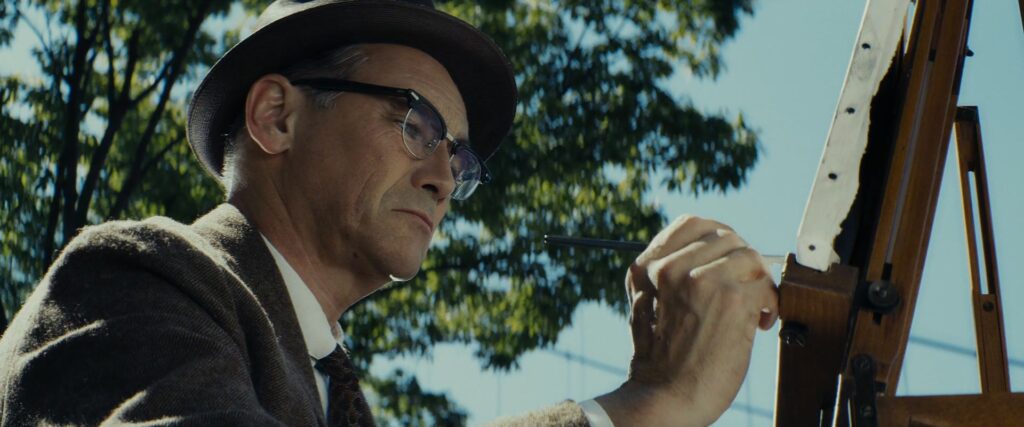
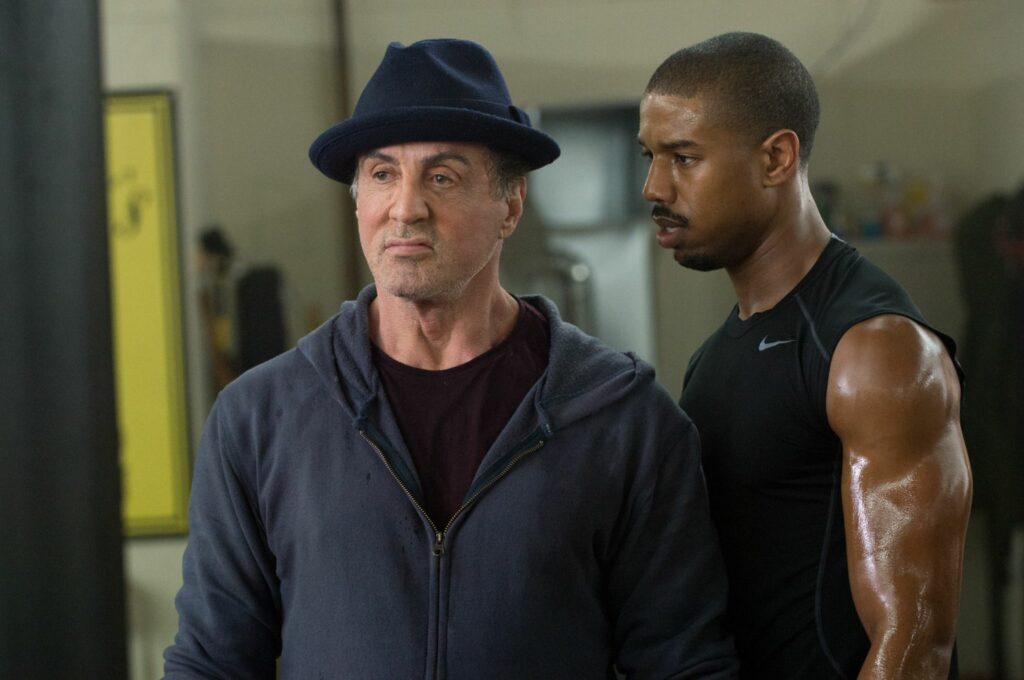
In early 2016, Sylvester Stallone made news by earning his first Academy Award nomination in nearly forty years for his portrayal of Rocky Balboa in Creed. This nomination made him one of the few actors to be nominated twice for playing the same character (others include Al Pacino and Cate Blanchett) since he was previously nominated in the Lead Actor category for Rocky. Generally, I’m not a fan of the Rocky movies, but the first one is iconic. I can’t say the same about the sequels. I didn’t have the highest expectations when I walked into the theater to see Creed, but I was curious to see how Michael B. Jordan and writer/director Ryan Coogler mixed into the world Stallone created all those years ago. I walked out of the theater having been so engaged and engrossed in the compelling storyline and character arcs presented. I remember turning to my mom and expressing my surprise that Sylvester Stallone could actually act. He managed to be funny and hopeful while playing a Rocky that has been beaten up so badly by life. He was undoubtedly worthy of the many accolades and nominations he received. I also think Jordan and the film itself were awards-worthy, but that’s a story for another time.
Just as equally compelling was Mark Rylance in Steven Spielberg’s Bridge of Spies. The film follows James Donovan (Tom Hanks), a lawyer tasked with defending and later swapping accused Soviet spy Rudolf Abel for a captured US soldier. I was equally impressed with Rylance, not only because of what he brought to the character but because he was able to hold his own against (some may say overshadow) Tom Hanks. That’s no easy feat. Rylance was a British stage actor with few on-screen credits, so I had never heard of him before. I think the fact that he was an unknown to the public, made his performance much more memorable. After Stallone won the Golden Globe, I, along with the general public, thought Stallone was a lock, but it was not to be. Again, I’m happy that if anyone other than Stallone won, it was Rylance. However, if you watch the clip online, take a look at Mark Ruffalo’s face as he hears the name “Mark” read aloud. The fakeout alone is worth a view.
Brad Pitt over Al Pacino or Joe Pesci for Best Supporting Actor (2019)
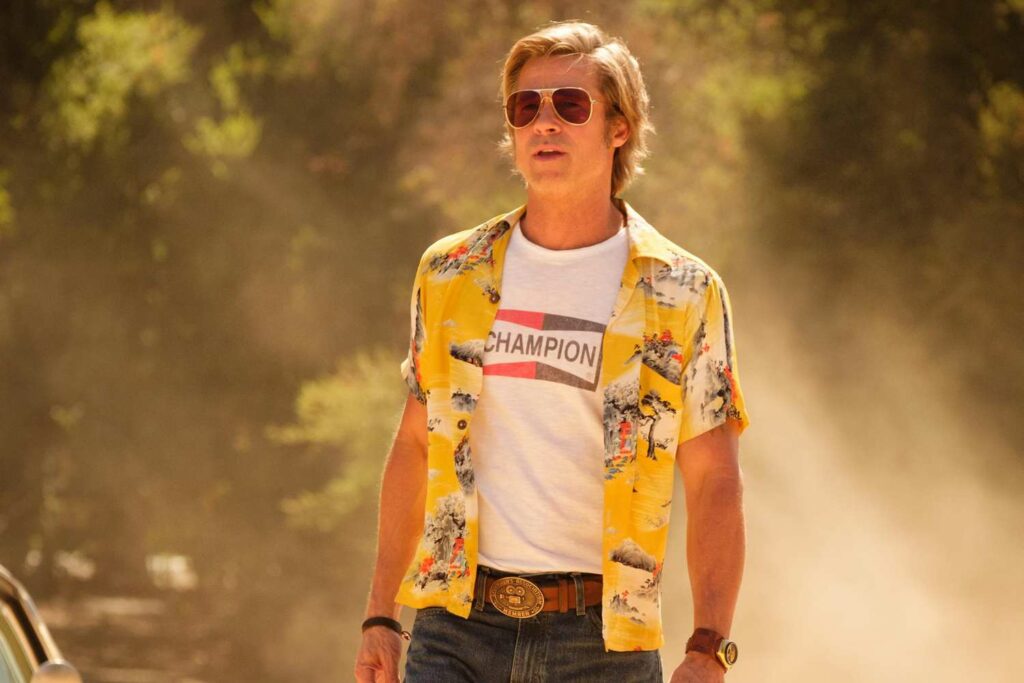
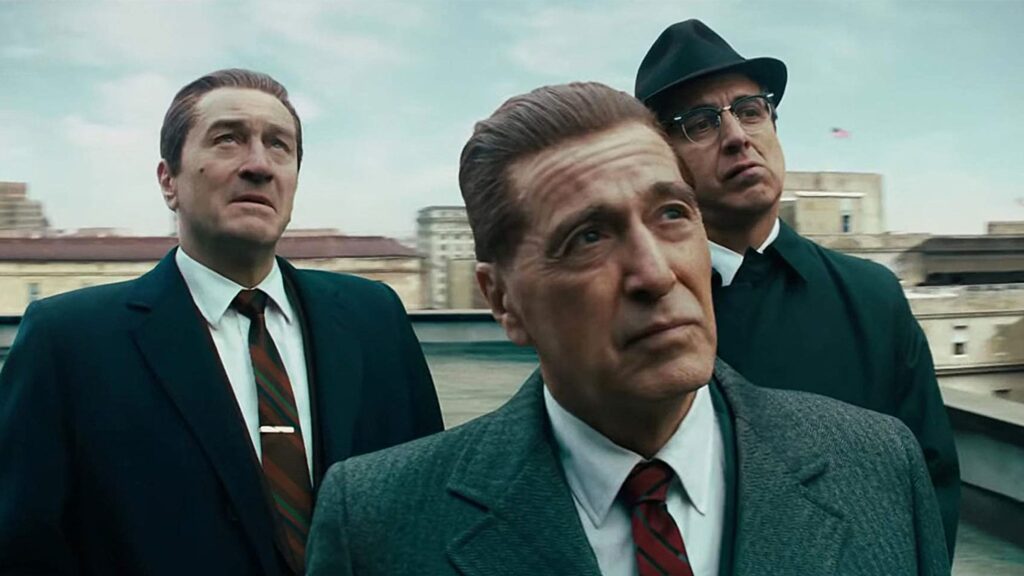
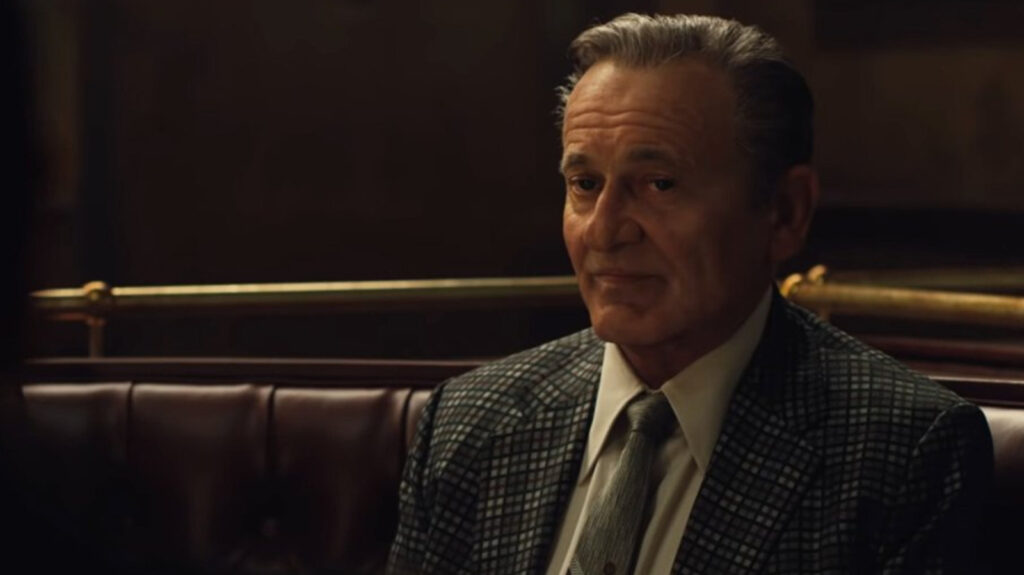
Here we have vote splitting and the old “overdue” Oscar trick at work. Leading up to the award ceremony, Pitt was on fire, having won the Golden Globe and SAG awards for his “supporting” performance in Quentin Tarantino’s Once Upon a Time in Hollywood. Pitt, an industry vet by this point, had never won an acting Oscar (he did win a Best Picture Oscar as one of the producers of 12 Years a Slave), and some may have thought he was overdue. Also, you may have noticed I used quotations around the word “supporting.” Depending on who you ask, some will defend this categorization, others will argue that he is the co-lead and should have been nominated as such. The main argument is that despite having just as much screen time as leading actor Leonardo DiCaprio, Pitt’s character supports Leo as the lead. Wherever you fall on this argument, I would agree that his performance as stuntman Cliff Booth is one of his best. He’s the voice of reason throughout the film, specifically to DiCaprio’s Rick Dalton, but he’s also funny and incredibly charming. It’s just hard for me to say that Pitt’s performance was the best of the year. Nominees (and past Oscar winners) in the category, Anthony Hopkins (The Two Popes) and Tom Hanks (A Beautiful Day in the Neighborhood) were DOA, but Al Pacino and Joe Pesci gave two of the best performances of their careers in Martin Scorsese’s mob epic The Irishman. As Jimmy Hoffa and Russell Bufalino respectively, both men, in any other year, could have won. Both were industry vets in their late 70s, with somehow, only one Oscar to their names, and it had been nearly thirty years since their last nominations (for which they both won). Perhaps Brad Pitt was too white hot that year and there was no stopping him on the path to glory? Or perhaps the voters who were partial to The Irishman didn’t want to choose between Pacino and Pesci, so they gave their vote to Pitt? I guess we will never know for certain.